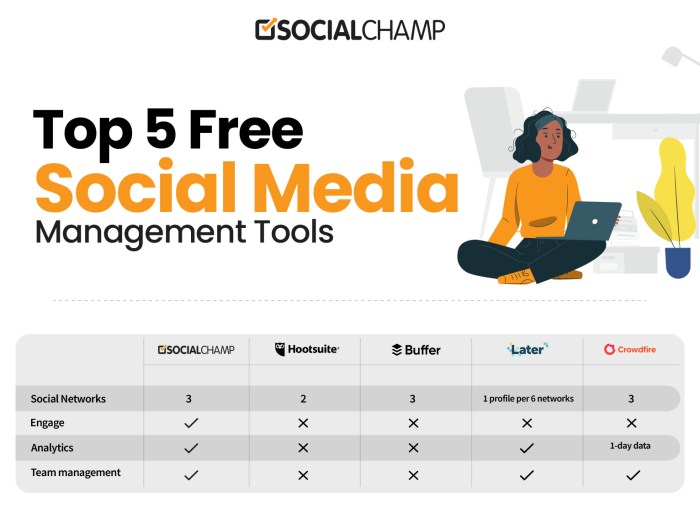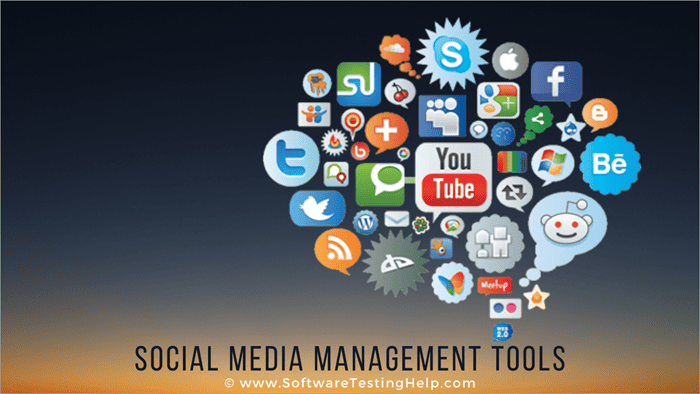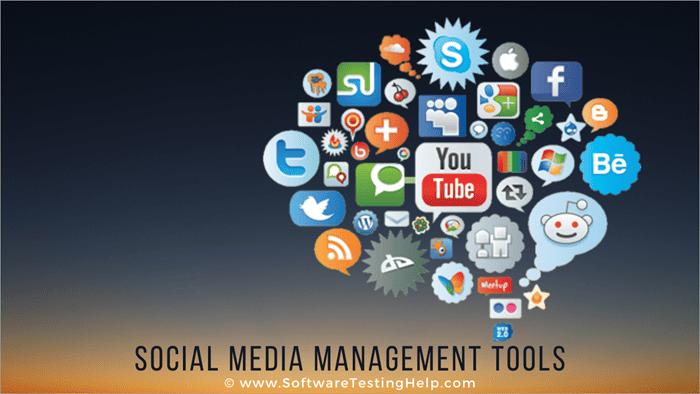Social Media Management Tools are the key to boosting your online presence and reaching a wider audience. From defining these tools to exploring their benefits, this guide has got you covered.
Ready to take your social media game to the next level? Let’s dive in and uncover the power of Social Media Management Tools.
Introduction to Social Media Management Tools

Social media management tools are software platforms that help individuals and businesses manage their social media accounts more efficiently. These tools offer a wide range of features such as scheduling posts, analyzing performance metrics, monitoring engagement, and managing multiple accounts from a single dashboard.
Popular Social Media Management Tools
- Hootsuite: A widely used platform that allows users to schedule posts, track analytics, and engage with their audience across multiple social media channels.
- Buffer: Known for its user-friendly interface, Buffer enables users to schedule posts, analyze performance data, and collaborate with team members.
- Sprout Social: Ideal for businesses looking to manage customer interactions, Sprout Social offers tools for social listening, analytics, and publishing content.
- Later: Focused on visual content, Later is popular among Instagram users for scheduling posts, analyzing performance, and organizing media assets.
Features of Social Media Management Tools
Social media management tools offer a variety of features to help businesses or individuals effectively manage their social media presence. These tools can streamline the process of scheduling posts, analyzing performance, engaging with followers, and more.
Key Features
- Social Media Scheduling: Allows users to schedule posts in advance across multiple platforms, saving time and ensuring consistent content.
- Analytics and Reporting: Provides insights into post performance, audience demographics, engagement metrics, and more to make data-driven decisions.
- Social Listening: Monitors conversations and mentions related to the brand or industry, allowing for timely responses and engagement.
- Content Curation: Helps discover, organize, and share relevant content from various sources to keep the feed fresh and engaging.
- Team Collaboration: Enables multiple users to work together on social media strategies, content creation, and scheduling.
Free vs. Paid Tools
- Free Tools: Often have limitations on the number of accounts or posts that can be managed, with basic scheduling and analytics features.
- Paid Tools: Offer advanced functionalities like in-depth analytics, social listening, team collaboration, and more robust scheduling capabilities.
- Automation: Plays a crucial role in saving time and optimizing social media management tasks. Features like post scheduling, auto-responses, and content recommendations streamline processes.
Benefits of Using Social Media Management Tools

Using social media management tools can offer numerous advantages for businesses looking to enhance their online presence and streamline their marketing efforts. These tools provide a centralized platform for managing multiple social media accounts, scheduling posts, and analyzing performance metrics to optimize strategies.
Efficient Post Scheduling
- Save Time: Social media management tools allow users to schedule posts in advance, eliminating the need for manual posting at specific times.
- Consistent Posting: By scheduling posts at optimal times, businesses can maintain a consistent presence on social media platforms, boosting engagement and reach.
- Manage Multiple Platforms: These tools enable users to manage and schedule posts across various social media channels simultaneously, ensuring a cohesive content strategy.
Analytics and Reporting Capabilities
- Track Performance: Social media management tools provide detailed analytics on post engagement, audience demographics, and overall campaign performance, allowing businesses to measure the effectiveness of their strategies.
- Identify Trends: By analyzing data and metrics, businesses can identify trends, understand audience behavior, and make data-driven decisions to optimize their social media marketing efforts.
- Generate Reports: These tools offer customizable reporting features that allow businesses to create comprehensive reports on key performance indicators, providing valuable insights for future campaigns.
Considerations When Choosing Social Media Management Tools
When selecting a social media management tool, it is essential to consider various factors to ensure that it meets your specific needs and requirements.
Scalability and Integrations
Scalability is crucial when choosing a social media management tool as your needs may change over time. Ensure that the tool can grow with your business and adapt to increasing demands. Integrations with other platforms such as CRM systems, analytics tools, and e-commerce platforms are also vital for a seamless workflow and data sharing.
Pricing Models, Social Media Management Tools
It is important to understand the pricing models offered by social media management tool providers to ensure that it fits within your budget. Common pricing models include monthly subscriptions, freemium models with additional paid features, and enterprise-level plans with custom pricing. Consider your budget and the features included in each pricing tier to make an informed decision.
Tips for Effective Social Media Management Tool Usage
When it comes to using social media management tools, there are some key tips to keep in mind in order to maximize their effectiveness. From content scheduling to audience engagement and monitoring brand mentions, these tools can be powerful assets in your social media strategy.
Optimizing Content Scheduling
- Use the analytics provided by your social media management tool to identify the best times to post based on when your audience is most active.
- Create a content calendar to plan and schedule posts in advance, ensuring a consistent and timely presence on all platforms.
- Experiment with different types of content (such as videos, images, or polls) and analyze the performance data to refine your posting strategy.
Leveraging Audience Engagement
- Set up automated responses to engage with followers in real-time, such as thanking them for likes or comments.
- Monitor social media conversations and trends to identify opportunities for engagement, whether through likes, comments, or sharing relevant content.
- Create interactive polls, quizzes, or Q&A sessions to encourage audience participation and foster a sense of community.
Monitoring Brand Mentions and Engagement
- Set up alerts for brand mentions or s related to your industry to stay informed about what people are saying about your brand.
- Respond promptly to both positive and negative comments to show your audience that you value their feedback and are actively listening.
- Analyze engagement metrics, such as likes, shares, and comments, to measure the impact of your social media efforts and make data-driven decisions for future content strategies.
